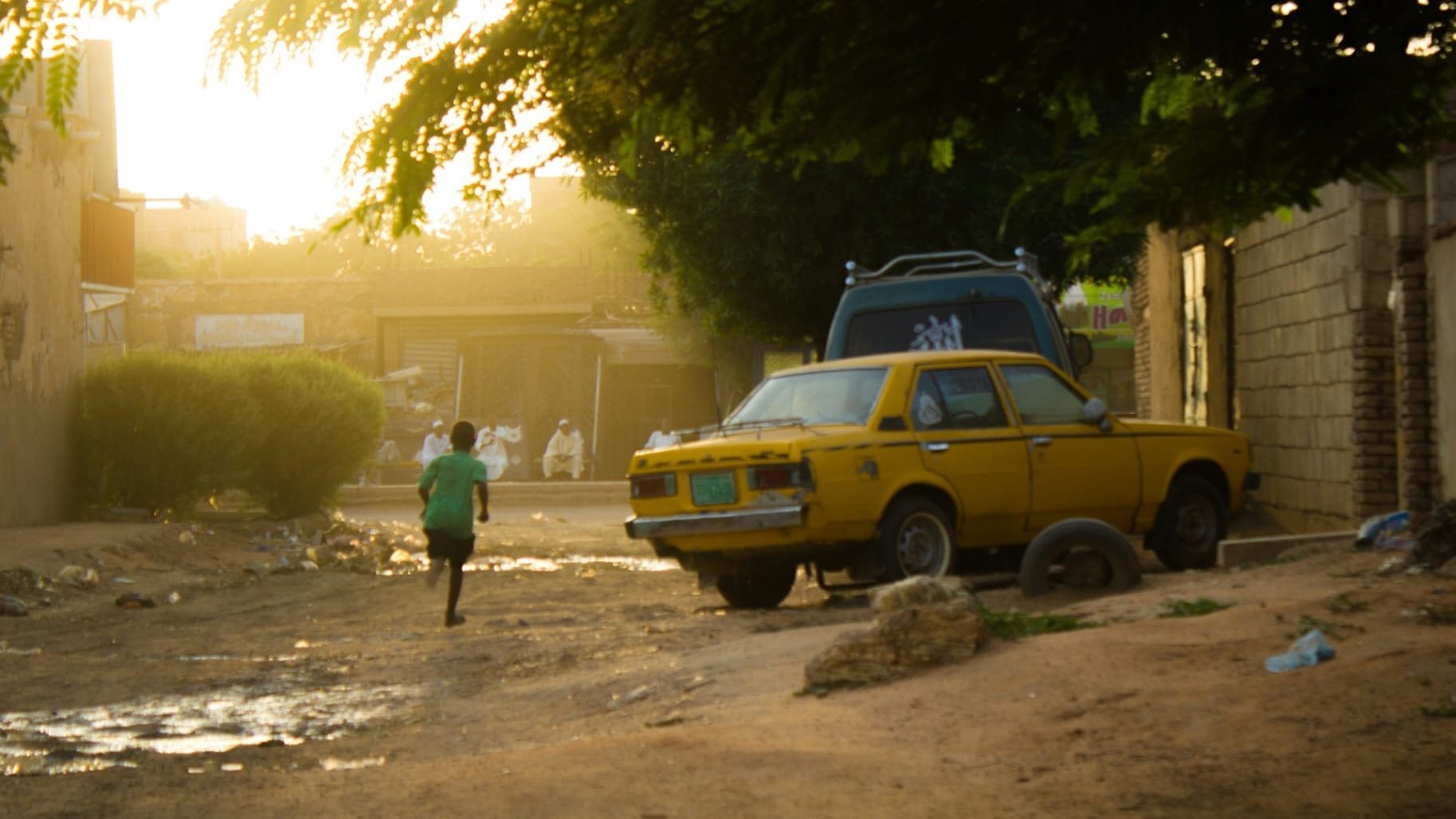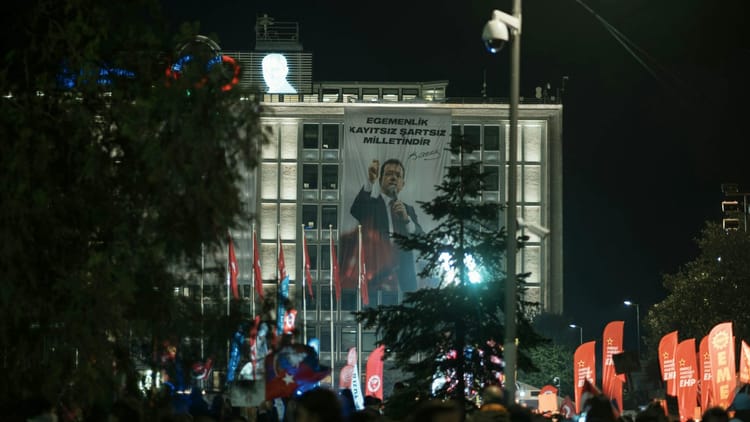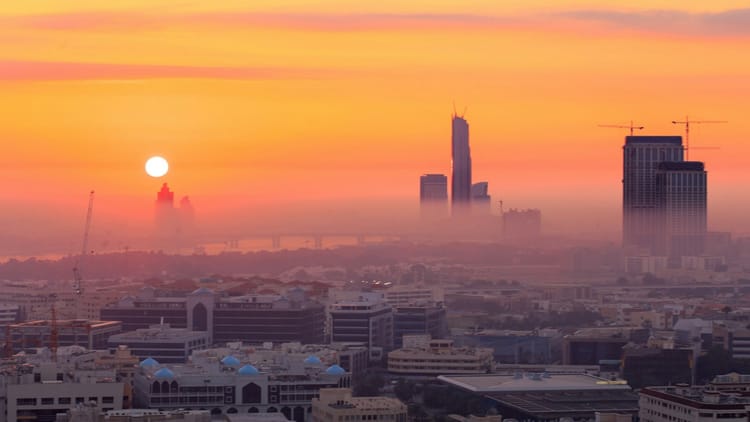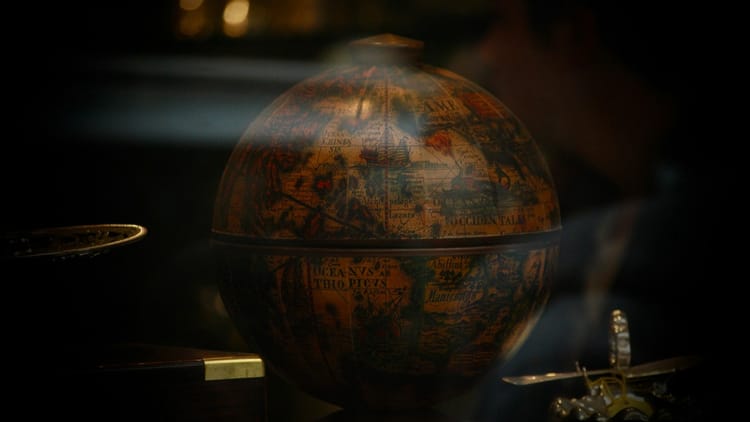Peacekeepers before peace

Recently: What does the American president’s preference for endless renegotiations over permanent settlements tell you about his diplomatic dealmaking?
Today: The U.S. administration proposes thousands of troops for the Gaza Strip by January. Regional powers in the Middle East won’t send forces unless Hamas disarms first; Hamas hasn’t agreed to disarm. Unclear, meantime: Who’s securing what, who’s governing at all, or when the peacekeeping mission would end.
+ For members: Why are so many foreign powers involving themselves in Africa’s deadliest civil war? Alex de Waal on the plunder of Sudan.
& New music from Momma ...
Into the void
The United States sent UN Security Council members a draft resolution on Monday that would put an International Security Force in Gaza through the end of 2027. The force would operate as “enforcement” rather than peacekeeping—empowered to use “all necessary measures” to secure borders, protect civilians, train Palestinian police, disarm Hamas, and destroy militant infrastructure. A Board of Peace (which President Donald Trump says he’ll chair) would oversee Gaza’s transitional governance. Countries including Indonesia, Turkey, Egypt, Pakistan, Saudi Arabia, and the United Arab Emirates met in Istanbul on Monday to discuss participation. Most want a UN mandate defining the force’s authority before they commit troops. Israel and potential contributors remain skeptical about timelines and commitments. Saudi Arabia, Egypt, and the U.A.E. say they won’t send forces unless Hamas agrees to surrender its arsenal first.
The resolution follows the pattern Trump’s frameworks have established elsewhere: Sign first, settle the hard questions later. But this time the framework calls for deploying thousands of troops into Gaza before anyone resolves whether Hamas will actually disarm, whether Israel will withdraw from additional territory as promised, or whether the Palestinian Authority can complete reforms that would let it govern. The force would operate during an “interim period” whose end conditions remain undefined. Istanbul’s meeting produced no commitments—just an agreement to keep talking. The draft calls for a Security Council vote “in the coming weeks” and first deployments by January. What it doesn’t specify: answers to the questions that would determine whether the force can succeed. … See “The art of the deals.”

Meanwhile
- Trump weighs Venezuela options. U.S. President Donald Trump affirmed on Sunday that he sees the dictator Nicolás Maduro’s days as “numbered”—the first time he’s been explicit about regime change being a goal in Venezuela. Trump’s administration has, according to The New York Times, developed three military options: airstrikes on military facilities to collapse support for Maduro; Special Operations forces to capture or kill him (sidestepping assassination prohibitions by arguing he heads a narcoterrorist gang); or seizing airfields and oil infrastructure. The Justice Department is drafting legal justifications. Trump remains reluctant about operations that risk American troops. The USS Gerald R. Ford carrier will arrive in mid-November with 5,000 sailors and 75 aircraft. … See “The carrier and the question.”
- Nigeria under military threat. Over the weekend, the American president ordered the Pentagon to prepare for potential military action in Nigeria over the alleged persecution of Christians, threatening to cut all aid. Nigeria’s President Bola Tinubu rejected the characterization as religiously intolerant—as both Muslims and Christians face attacks from Boko Haram and extremist groups in the northeast. When reporters asked Sunday whether he’d deploy troops or conduct airstrikes, Trump said: “Could be. … They’re killing the Christians and killing them in very large numbers.” Nigerian officials say the country welcomes counterterrorism cooperation but won’t accept sovereignty violations.
- Americans vote in off-year races. Polls open on Tuesday in the first major electoral test of Trump’s second term. New York City could elect its first Muslim—and millennial—mayor, democratic socialist Zohran Mamdani leads in polls. Virginia and New Jersey elect governors; the winner in Virginia becomes the commonwealth’s first female governor. California voters decide on Proposition 50, a congressional redistricting measure that could flip five House seats to Democrats. The elections are taking place as the U.S.-government shutdown enters day 35, with 42 million Americans awaiting reduced food-stamp payments.
- Dick Cheney dies at 84. The former U.S. vice president Dick Cheney died on Monday night of complications from pneumonia and cardiac disease. Cheney served under President George W. Bush from 2001 to 2009, becoming one of the most powerful figures to hold the American vice presidency. He shaped the Bush administration’s response to September 11 and pushed for the Iraq War based on claims about weapons of mass destruction, which proved false. Cheney survived five heart attacks between 1978 and 2010, and received a heart transplant in 2012. He broke with Republicans to oppose Trump, endorsing Kamala Harris in 2024.
- Famine spreads in Sudan. The Integrated Food Security Phase Classification confirmed a famine on Monday in El Fasher (North Darfur) and Kadugli (South Kordofan), with 375,000 people facing catastrophic hunger and 21 million facing acute food insecurity—the world’s largest hunger crisis. El Fasher fell last week to the Rapid Support Forces, the paramilitary group fighting Sudan’s army since April 2023, after an 18-month siege that cut off food supplies; at least 71,000 people fled. The RSF is now preparing an offensive toward El Obeid in central Sudan. Only 28 percent of Sudan’s $4.16 billion humanitarian plan has funding. Twenty other areas face famine risk. … See “‘It’s a scramble’.”

Wary of fast fashion?
Shop Congo Clothing Company and
make a difference—in style.
Feature
The business of starvation
Why are so many foreign powers involving themselves in Africa’s deadliest civil war? Alex de Waal on the plunder of Sudan.

The famine spreading across Darfur and Kordofan didn’t emerge from drought or crop failure. It’s been engineered—with cities cut off from food for 18 months while armed groups have fought over control—raising the question: Why are many foreign powers financing Sudan’s civil war while it starves millions?
This week in The Signal, Alex de Waal discusses what’s driving the conflict: not ideology or tribal hatred, but an open scramble for gold mines, mercenary contracts, and strategic real estate along the Red Sea. The Rapid Support Forces, the paramilitaries besieging these cities, operate less like a militia and more like a transnational criminal enterprise. Regional powers—the United Arab Emirates, Egypt, Saudi Arabia, and Turkey—back competing sides, not to stabilize Sudan but to outmaneuver each other.
The international system that might have prevented collapse in Sudan fractured years ago—after NATO’s 2011 military intervention to topple Muammar Gaddafi destroyed the consensus that African crises required multilateral solutions. What’s left is militarized corruption at work, with 21 million Sudanese facing acute hunger as collateral damage.
From Alex in The Signal:
- “The RSF doesn’t function like a conventional rebel army. It’s best to think of it as a corporate enterprise—a transnational startup consisting of several business ventures invested particularly in gold but in various other things too: livestock, mercenaries, and political power.”
- “These foreign powers got involved without acknowledging that it could be a lose-lose situation. They saw it as kleptocratic business as usual, so they continued supporting their respective sides even while Sudan crumbled. That’s nonsensical in terms of long-term commercial investments. But it makes sense if they’re trying to outmaneuver their rivals.”
- “Sudan is a particularly stark manifestation of global kleptocracy. This is kleptocracy at work. You see very similar, if more concealed, dynamics in Syria, Iraq, Yemen, Libya, even Ukraine. Sudan is special because its systemic corruption is so transparent and naked—it’s not at all disguised as an ideological conflict.”
Your loyal guide to a changing world.
Membership with The Signal means exclusive access to premium benefits:
- Regular profiles on the questions behind the headlines
- In-depth feature interviews with our network of specialist contributors from across America and around the world
- The despatch, our weekly current-affairs and cultural-intelligence briefing
- Early access to new products, including print extras
It also means vital support for an independent new enterprise in current-affairs journalism.
New music
‘Cross Your Heart’
In April, the Brooklyn-based indie grunge band Momma put out Welcome to My Blue Sky. On November 14, they’re issuing a deluxe edition, and “Cross Your Heart” is one of its five extra tracks. There is a risqué undercurrent in the lyrics—but also a crunch in the guitars that almost drowns it out.





